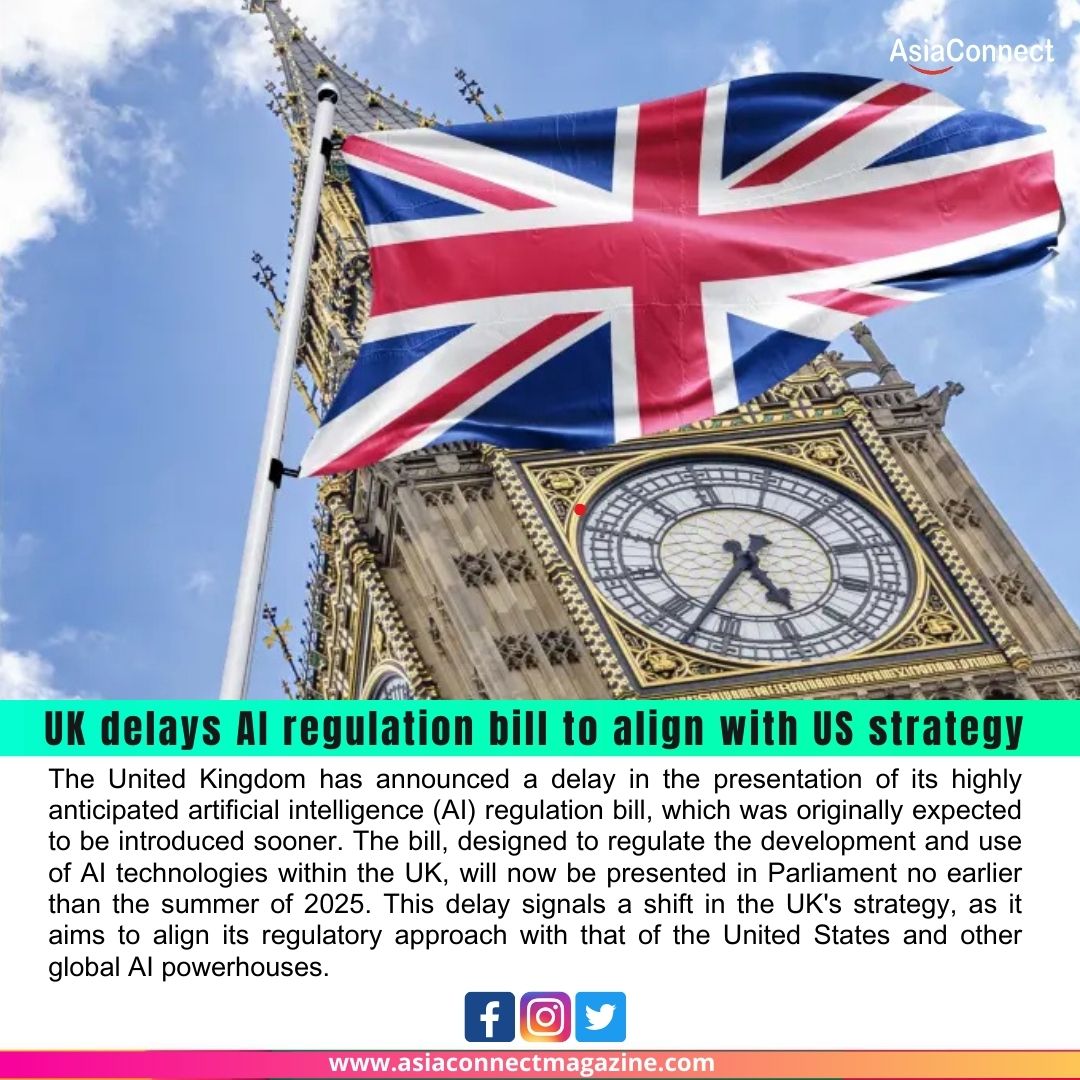The United Kingdom has announced a delay in the presentation of its highly anticipated artificial intelligence (AI) regulation bill, which was originally expected to be introduced sooner. The bill, designed to regulate the development and use of AI technologies within the UK, will now be presented in Parliament no earlier than the summer of 2025. This delay signals a shift in the UK’s strategy, as it aims to align its regulatory approach with that of the United States and other global AI powerhouses.
The Initial Push for AI Regulation
The push for AI regulation in the UK had gained significant traction over the past few years, driven by concerns over the rapid development of AI technologies and their potential societal, ethical, and economic impacts. With AI playing an increasingly significant role in industries ranging from healthcare and finance to autonomous vehicles and cybersecurity, governments around the world have been grappling with the challenges of how to effectively regulate this rapidly evolving technology.
In 2021, the UK government published a white paper on AI regulation, setting the stage for a comprehensive framework aimed at ensuring AI technologies were developed safely, ethically, and transparently. The proposed regulations would have covered issues such as algorithmic transparency, data privacy, bias in AI systems, and the accountability of AI-driven decisions. At the time, the UK had positioned itself as a leader in AI regulation, hoping to establish a clear set of guidelines that could help the country remain competitive in the global AI race while ensuring the technology was used responsibly.
The Delay and Its Implications
However, the recent announcement of the delay in the AI regulation bill has raised questions about the UK’s long-term strategy for AI governance. The government’s decision to postpone the bill’s introduction until at least summer 2025 is seen as a response to evolving global trends, particularly the approach being taken by the United States.
The Biden administration in the US has been taking significant steps towards regulating AI, and the UK government appears to be waiting for the US to finalize its regulatory framework before moving forward. The delay in the UK’s regulation bill reflects a broader trend of seeking alignment between the world’s two largest AI markets. Many believe that harmonizing regulations across countries with major AI developments will help facilitate international trade and cooperation, particularly in areas such as AI ethics, data protection, and intellectual property rights.
Aligning with the US Strategy
The US has taken a more cautious approach to AI regulation, focusing on key areas such as transparency, accountability, and consumer protection. The US has also taken steps to encourage AI innovation through funding and partnerships between the private sector and government. By aligning with the US’s regulatory framework, the UK aims to avoid potential regulatory fragmentation that could harm cross-border AI collaborations.
Moreover, aligning with the US could help the UK attract global AI companies and investment, making it a key player in the international AI landscape. As many AI companies operate across both the UK and the US, a unified regulatory approach would provide more consistency and predictability, reducing the administrative burden on companies operating in both markets.
The Road Ahead for AI Regulation in the UK
While the delay in the AI regulation bill may be seen as a setback for those pushing for faster regulation, it may also be a sign that the UK is taking a more strategic and coordinated approach. By aligning with global efforts, particularly the US, the UK could ensure that its regulatory framework is robust, forward-thinking, and in line with international standards. However, it will need to balance this alignment with the need to maintain its leadership in AI ethics and innovation.
As the world continues to grapple with the implications of artificial intelligence, the UK’s decision to delay its regulation bill will likely be watched closely by governments, industry leaders, and experts around the globe. The coming years will determine how effective the UK can be in shaping the global conversation on AI governance and ensuring that the technology benefits society while minimizing its risks.





